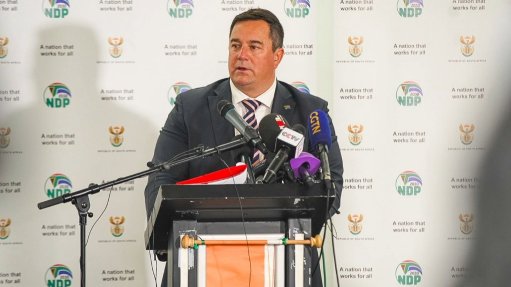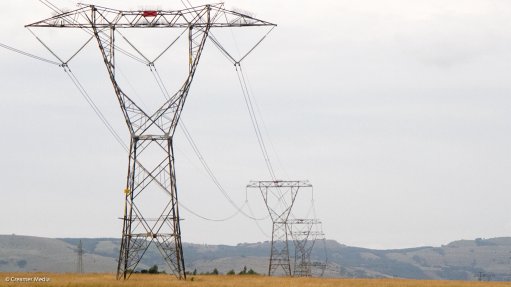Brexit: Clowns to the left of me! Jokers to the right! Stuck . . .
The most significant casualties of Brexit are the 112 000 British people who have lost their lives to Covid-19. It was the greatest misfortune of all that they should have fallen prey to a deadly virus under a newly elected populist Prime Minister atop a government of Ministers who were selected not for their proven competence or knowledge but for their servile and written loyalty to Boris Johnson and his single objective – to ‘Get Brexit Done’.
As Johnson swept into Downing Street, his notorious and omnipresent special adviser, Dominic Cummings, launched an internal war with Whitehall – Britain’s legendary apolitical civil service, on which Johnson would need to rely to manage the Covid-19 crisis. A year ago, as Johnson boasted – no doubt with a ‘Lady Diana-HIV moment’ in mind – that he had shaken hands with several patients in a Covid-19 ward. The pleadings of Jeremy Hunt, Heath Minister of ten previous years, that government follow South Korea’s example and implement immediate border controls and a ‘test, track, trace, isolate, treat’ system went unheard, with devastating consequences.
But Brexit got done! In a move reminiscent of Japanese Sakoku (closed country) when Japan, circa 1630, restricted trade and barred nearly all foreign nationals from entry, Britain, at the stroke of midnight on December 31, pulled up the drawbridge against the European Union (EU), ending the free movement of goods, people, capital and services between the UK and its nearest neighbours, the EU’s 27 member States. Lost in all Johnson’s bombast and tomfoolery is that, at its heart, Brexit reflected the UK’s deep hostility to immigrants – both recent migrants from EU member States and descendants of people from the former colonies, and migrants from the Commonwealth – that Johnson’s clique of ruling Conservatives have espoused and indeed fanned. Behind the mantra ‘take back control’ is a deep xenophobia, a racism even. Johnson has spoken of reuniting the ‘Anglosphere’, a concept propounded by a group of extreme English nationalists referring to English-speaking ‘white-run’ former colonies: the US, Australia, Canada and New Zealand. Visas for Africa’s most populous English-speaking country, Nigeria, received no mention in Johnson’s neo-imperialist vision.
Nor did some simple economic rules – such as “distance halves trade” – make it into the Brexit lexicon, and December 31 saw Johnson and his sidekick, Michael Gove, propel the UK into an economic adjustment borne of the disintegration of 40 years of UK-EU trade. Johnson’s UK-EU trade deal is unique, says Pascal Lammy, a former World Trade Organisation boss, in that it reverses what normal trade deals attempt to do. Instead of removing barriers to trade, this one reintroduces them. The adjustment’s impact has been immediate – most critically in London’s financial centre. On January 1, about €6-billion in EU share trading left The City, never to return, as did some 7 000 related jobs. More are expected to follow. Johnson had excluded financial services, which account for close to 7% of the UK’s gross domestic product (GDP), from his ‘oven-ready deal’ but pushed home some very sprat-like advantages for the (pro-Brexit) fishing industry, which accounts for – wait for it – 0.1% of UK GDP. Any elation in the fishing industry was short-lived – the EU, the UK fishing industry’s main customer, has since applied its rules for nonmember countries for live UK shellfish exports and has banned them.
Meanwhile, a new ‘Australia-style’ points-based immigration system, introduced to appease the UK’s growing anti-immigrant sentiment, coupled with a collapse in the value of sterling relative to the euro, has seen agencies providing permanent and seasonal farm workers shut up shop. For over a decade, EU nationals – mainly Romanians, Polish and Lithuanians –have worked UK dairy herds. The UK’s National farmers Union complains that the welfare of farmers, as well as that of livestock, is at risk. But most striking has been the hit to the industries that had come to define ‘cool Britannia’ – Britain’s involvement in the international fashion, music, film and food industries. UK fashion – pre-Covid-19 – was a fast-growing £35-billion industry relying on a supply chain of a multitude of micro-company specialists from photographers to models to fashion historians, all of whose services are now subject to new work permit and visa rules, value-added tax and customs duties. UK hauliers serving the UK music festival scene will no longer be able to transport equipment (which now needs permits) from one venue to the next within the EU. Covid-19’s hit to the economy has been a loss of 20% of GDP and economists anticipate Brexit could see the economy contract a further 7% over time.
Far from being a relaunch of a great maritime and mercantile power, Brexit may prove to be the final nail in the British imperial coffin. The brute majoritarianism of a Westminster Conservative government imposing an exit from the EU on two of the UK’s devolved nations, Scotland and Northern Ireland, which both voted to stay in the EU, threatens to tear the union apart. Polls in Scotland since the EU referendum consistently show that most Scots would now prefer to dissolve the union with England and Wales, formed in 1603. To avoid a border on the island of Ireland, Johnson’s tossed a border in the Irish Sea, having said he would not. This has not only left supermarket shelves in Northern Ireland bare, as mounds of paperwork disrupt supplies from ‘mainland’ Britain, but it has reawakened chatter from Northern Ireland’s unionist paramilitaries.
So, what does this mean for Africa? The moment the UK-EU trade arrangements came to an end, the Africa Continental Free Trade Agreement came into being. This month saw Zambia become the thirty-sixth country to ratify the agreement, which provides for much greater integration and freer movement of people, goods and capital across the continent. Brexit provides a perfect template of why every effort should be made now to avoid a messy break-up later.
Article Enquiry
Email Article
Save Article
Feedback
To advertise email advertising@creamermedia.co.za or click here
Comments
Announcements
What's On
Subscribe to improve your user experience...
Option 1 (equivalent of R125 a month):
Receive a weekly copy of Creamer Media's Engineering News & Mining Weekly magazine
(print copy for those in South Africa and e-magazine for those outside of South Africa)
Receive daily email newsletters
Access to full search results
Access archive of magazine back copies
Access to Projects in Progress
Access to ONE Research Report of your choice in PDF format
Option 2 (equivalent of R375 a month):
All benefits from Option 1
PLUS
Access to Creamer Media's Research Channel Africa for ALL Research Reports, in PDF format, on various industrial and mining sectors
including Electricity; Water; Energy Transition; Hydrogen; Roads, Rail and Ports; Coal; Gold; Platinum; Battery Metals; etc.
Already a subscriber?
Forgotten your password?
Receive weekly copy of Creamer Media's Engineering News & Mining Weekly magazine (print copy for those in South Africa and e-magazine for those outside of South Africa)
➕
Recieve daily email newsletters
➕
Access to full search results
➕
Access archive of magazine back copies
➕
Access to Projects in Progress
➕
Access to ONE Research Report of your choice in PDF format
RESEARCH CHANNEL AFRICA
R4500 (equivalent of R375 a month)
SUBSCRIBEAll benefits from Option 1
➕
Access to Creamer Media's Research Channel Africa for ALL Research Reports on various industrial and mining sectors, in PDF format, including on:
Electricity
➕
Water
➕
Energy Transition
➕
Hydrogen
➕
Roads, Rail and Ports
➕
Coal
➕
Gold
➕
Platinum
➕
Battery Metals
➕
etc.
Receive all benefits from Option 1 or Option 2 delivered to numerous people at your company
➕
Multiple User names and Passwords for simultaneous log-ins
➕
Intranet integration access to all in your organisation


















